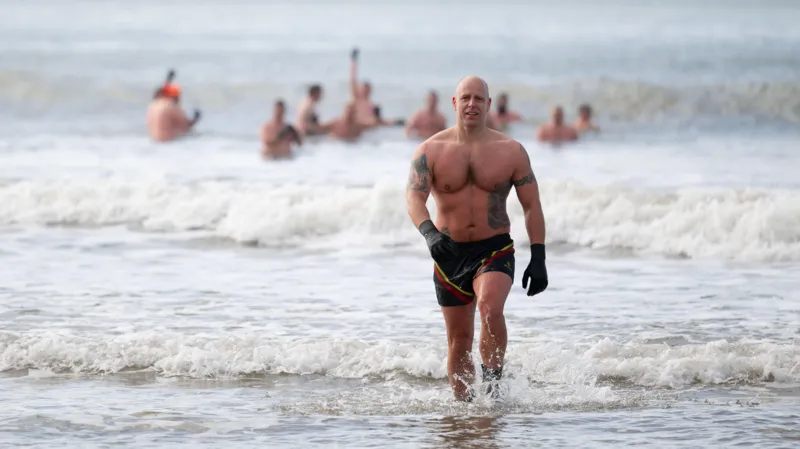Cold water swimming is gaining popularity for its supposed mental health benefits, with many enthusiasts swearing by its mood-boosting powers. But now, researchers are diving deeper—literally—to explore whether taking an ice-cold dip can offer relief for those suffering from post-traumatic stress disorder (PTSD).
Groundbreaking PTSD Research Using Cold Water Immersion
A pioneering study led by Dr. Denise Hill, associate professor of sport psychology at Swansea University, is the first in the UK to investigate the effects of cold water swimming on PTSD. The team is exploring whether this natural practice can act as a supplementary therapy alongside conventional treatments like talking therapies and medication.
Tracking the Science: Cortisol and Cold Water
The research focuses on cortisol, a hormone directly linked to stress. To track its levels, swimmers participating in the study give saliva samples before and after cold water immersion. These readings offer a biological insight into how the body reacts to the shock and stimulation of cold water.
The initial phase involved volunteers providing four saliva samples per day over two days, followed by 10-minute weekly sea swims off the South Wales coast. Post-swim, they completed questionnaires on wellbeing, depression, and PTSD symptoms. Blood sampling and participant interviews are planned for future stages before progressing to clinical trials.
Veterans Share Their Experiences
Military veteran Phil Jones, a 42-year-old former Royal Marines Commando, cold water swimming has been dealing with PTSD caused by conflict. For him, cold water immersion has been transformational.
“Cold water swimming has been a game-changer for me. I don’t like getting into the water, but I know it’s good for me. Coming out, you’re absolutely buzzing—happier, more focused, more motivated. Problems tend to wash away.”
Jones has been regularly swimming in the 9°C (48°F) waters of the Bristol Channel at Caswell Bay for five years.
Fellow veteran Tony Davies, a former Welsh Guardsman, agrees:
“It makes you feel so alive and clears your head for the rest of the day.”
Both veterans are part of a small group supporting the research and bringing attention to its potential benefits.
A Promising Path for Mental Health Treatment
Dr. Hill emphasizes this is just the beginning:
“There’s growing research on the mental health benefits of cold water immersion, but surprisingly, no study has looked specifically at PTSD—until now.”
Wales’ Veterans’ Commissioner Col James Phillips supports the initiative, noting:
“Without evidence and data, it’s very hard to argue for resources and specific services.”
With around 1 in 10 people in the UK expected to experience PTSD at some point, and roughly 1 in 3 trauma survivors affected, this study could offer a valuable, nature-based addition to existing treatment options.
Frequently Asked Questions (FAQs)
What is cold water swimming therapy?
Cold water immersion therapy involves submerging the body in cold water, usually below 15°C (59°F), to stimulate physical and mental health benefits, including reduced inflammation, improved mood, and stress relief.
Can cold water swimming help with PTSD?
Preliminary research, like the study from Swansea University, suggests cold water immersion may reduce stress and improve mental clarity, making it a potential supplementary treatment for PTSD when used alongside therapy and medication.
How does cold water affect cortisol levels?
Cortisol is a stress hormone, and cold water immersion is believed to regulate its production. In the Swansea study, researchers track cortisol levels through saliva samples to measure stress response changes before and after swims.
Is cold water therapy safe for everyone?
Cold water immersion may not be suitable for people with certain health conditions, like heart problems or asthma. It’s essential to consult with a healthcare professional before beginning cold water therapy.
How often should you do cold water immersion?
In the current study, participants swim once a week for 10 minutes. Regular but gradual exposure is often recommended to allow the body to adapt safely.
Where can I try cold water swimming in the UK?
Popular locations include Caswell Bay on the Gower Peninsula, as well as numerous coastal and inland swimming spots around the UK. Always swim with others and follow safety guidelines.











Leave a Reply